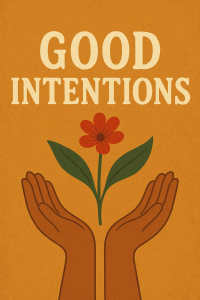I attended a webinar this morning on the new UK laws, which became effective on the 26th October 2024 under the Worker Protection (Amendment of Equality Act 2010) Act 2023. These now impose a proactive duty on employers to prevent sexual harassment in the workplace, so here is a summary of the position:
- Proactive Prevention: Employers are required to take reasonable steps to prevent sexual harassment. While employers already had a defense for claims if they took “all reasonable steps” to prevent harassment, the new law strengthens this expectation by making prevention mandatory.
- Compensation Penalties: If an employer fails to meet this duty and an employee wins a harassment claim, tribunals can increase compensation awards by up to 25%.
- Third-party Harassment: Although the law encourages employers to address risks from third parties (e.g., customers or contractors), it does not currently impose liability for harassment by non-employees.
- Regulator Oversight: The Equality and Human Rights Commission (EHRC) can investigate breaches, enforce preventative duties, and issue legally binding recommendations or injunctions to compel compliance.
- Steps for Employers:
- Risk Assessments: Identify specific harassment risks in the workplace and implement measures to mitigate them.
- Training: Provide tailored, practical training for employees and management on recognizing and preventing harassment.
- Policies: Update and communicate anti-harassment policies, ensuring clear procedures for reporting and addressing incidents.
- Workplace Culture: Foster an environment of dignity and inclusivity, encouraging early reporting and addressing power imbalances or other systemic risks.
Employers now have to take reasonable preventative steps to actively avoid/prevent sexual harrassment from taking place in the workplace. Whilst the lawyers present at this webinar said that SMEs “may” not need to be as “sorted” as big companies, the law is still confusing (surely not..!?). It also begs the question as to whether one man bands have to take any steps to prevent this; do I need to have a stern conversation with myself.
Risk Assessment
The first step they recommended was to do a risk assessment identifying potential areas of potential concern and what steps need to be taken to minimise / remove this problem. The main areas they recommended looking at were:
- Times when staff are working at night
- Staff working in client offices
- Events/occasions when alcohol is consumed
- and this is the one which did cause me to raise an eyebrow, preventing banter which others may find offensive.
Have We Now Gone Too Far?
One of the attendees asked if they should cancel the end of year Christmas party and the answer I am sure left a few considering if this would ever back fire in their face.
The lawyer advised anyone organising a party needed to remind everyone in writing of their conduct on the night of the party, They also suggested avoiding paying for any alcohol on the night to minimise any risk of claims.
I would never condone any behaviour that was disrespectful and unprofessional, but it does sadden me to think that someone that we all looked forward to could end up being cancellled because employers are too concerned about any repercussions…
Equally concerning to me was to hear that if someone overheard you having a conversation with someone else which made them feel uncomfortable could be seen as a reason for an employee to make a complaint. Beware of any joke telling in the kitchen or name calling in the office?! Banter actually makes people smile most of the time, so is this reasonable? Certain industries are reknown for being male dominated, so ladies, don’t apply if you feel you are going to be triggered; it’s the wrong role for you ! HR – perhaps something that you can include in your job spec when recruiting?
But above all, at the end of the day, why are we making employers responsible for behaviour that should be ingrained in us by our care givers as we grow up? Education is so much more important.



